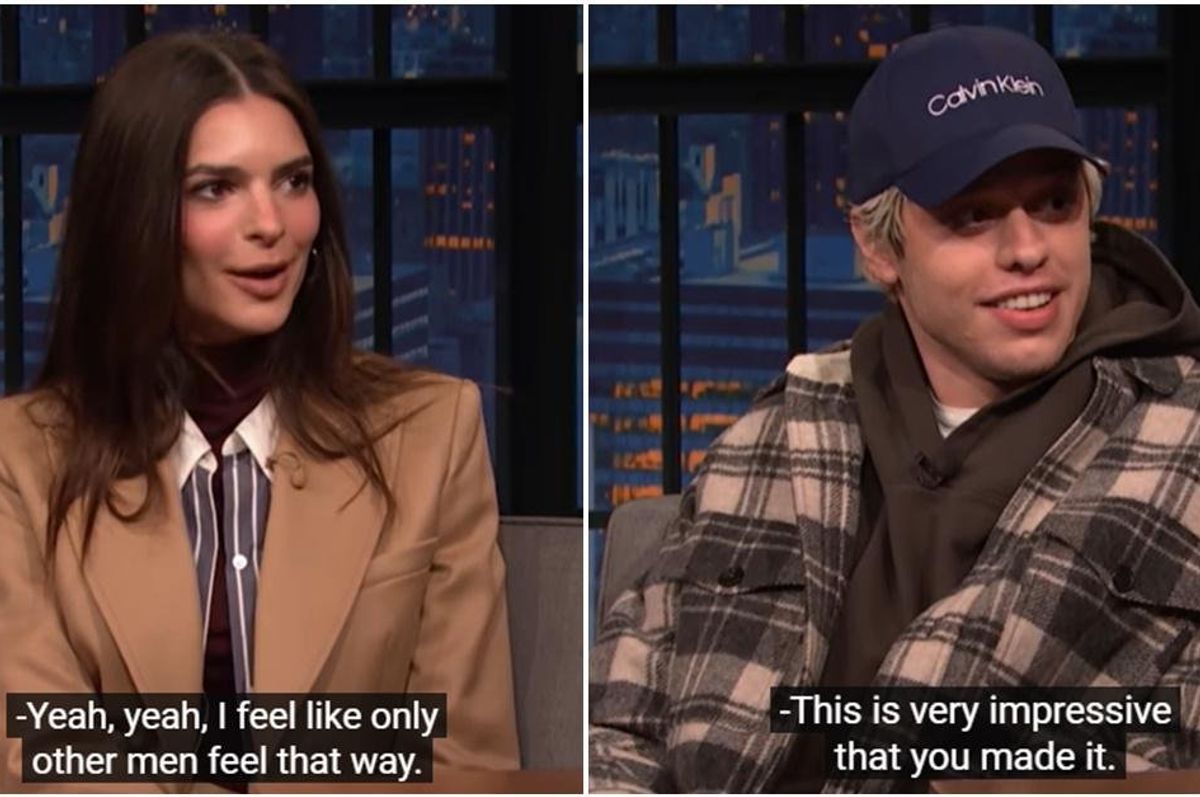Emily Ratajkowski explains why women find Pete Davidson so attractive
"I feel like only other men feel [that he isn't attractive]. Guys are like, 'Wow. What's that guy got?'"
Emily Ratajkowski discusses Pete Davidson's appeal.
Pete Davidson, 31, has earned a reputation as one of Hollywood's most prolific ladies' men for dating some of the most beautiful A-list women over the past several years. However, many people don't understand the appeal of the "Saturday Night Live" star. Davidson is tattooed from head to toe. He suffers from Crohn's disease, has done multiple stints in rehab, describes himself as looking like a "crack baby" and only recently moved out of his mother's basement on Staten Island.
But he's also been one of the most popular cast members on "SNL" for the past seven years and co-wrote and starred in the critically acclaimed "The King of Staten Island."
Here are a few of the high-profile, incredibly attractive, and famous women that Davidson has been seen with over the past few years.
Ariana Grande (2018)
Davidson and the pop megastar revealed they were in a relationship at the end of May 2018 and got engaged quickly. The pair called off their engagement and broke up in October 2018 after just five months together. Davidson made the break-up public by pretending to propose to an "SNL" co-host, and wishing his ex-fiancée all the best. He also claimed on the show that the breakup was "nobody's business."
Kate Beckinsale (2019)
Margaret Qualley (2019)
Davidson and the "Once Upon a Time ... in Hollywood" star had a brief relationship at the end of 2019. Her mother, Andie McDowell, called their flirtation "nice."
Kaia Gerber (2019-2020)
Phoebe Dynevor (2020)
Kim Kardashian (2021)
Beckinsale recently affirmed a similar statement about Davidson by liking an Instagram post that read:
"I love how every time Pete Davidson starts dating another beautiful celebrity everyone's like 'wtf is happening how did he do this what is this mystery???' and everybody refuses to entertain the possibility that he might have a nice personality."
Evidently, Davidson is a really attentive boyfriend, too.
"My love language, when I'm in a relationship, is I treat the person I'm with like a princess,'' he told Paper. "I try and go as above and beyond as possible," he said, "because that's what you're supposed to do? If you're in a relationship with someone, you're just supposed to make that person feel as special as possible."
The fact that women everywhere are in love with Davidson actually says something pretty awesome. It goes to show that even in the glamorous world of Hollywood there's something irresistible about someone who's funny, attentive, vulnerable, charming, down-to-earth and loves his mother.
This article originally appeared four years ago.







